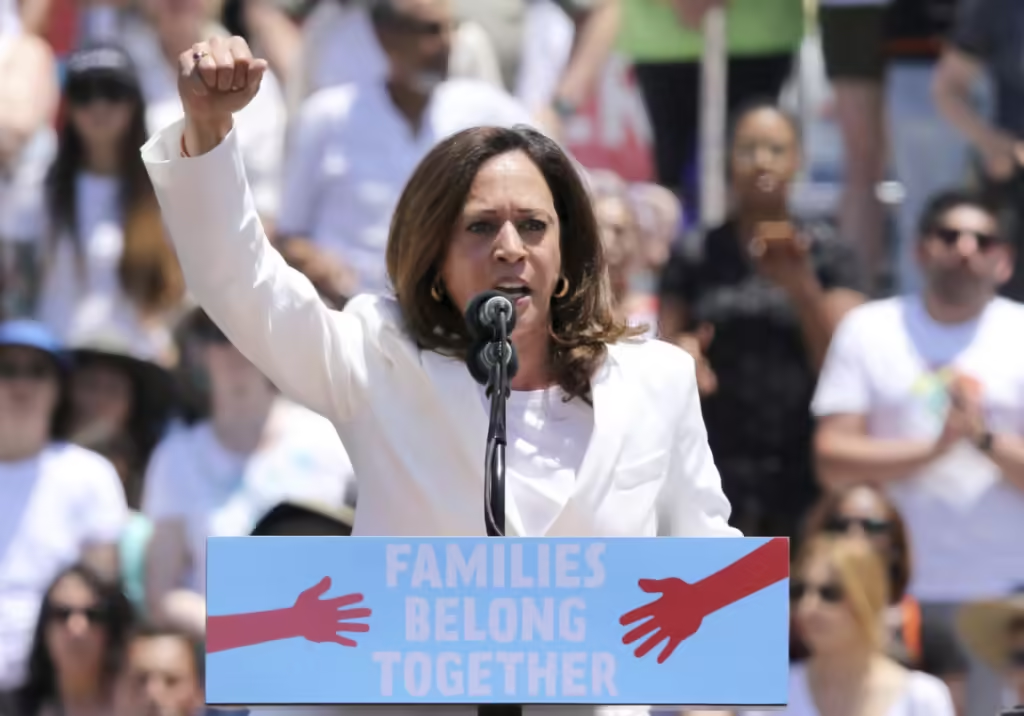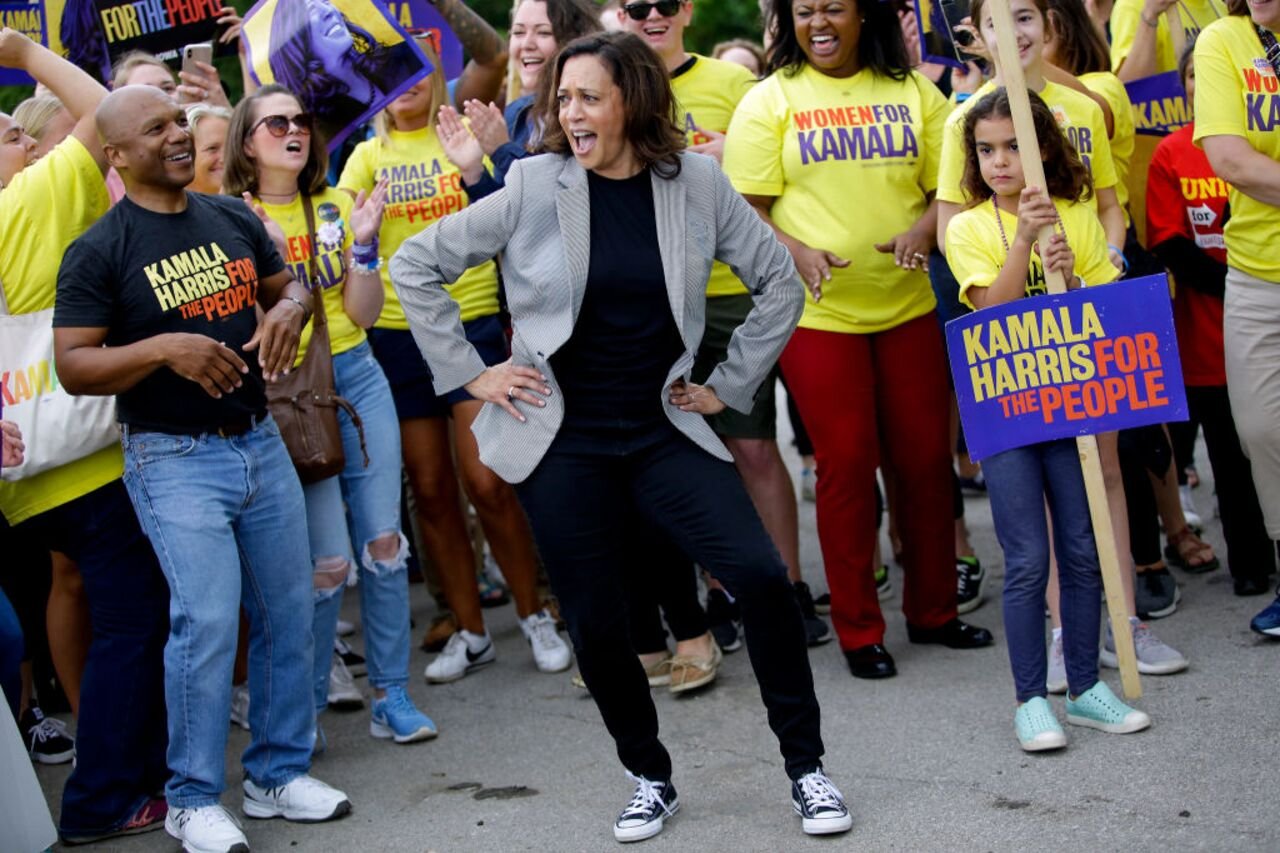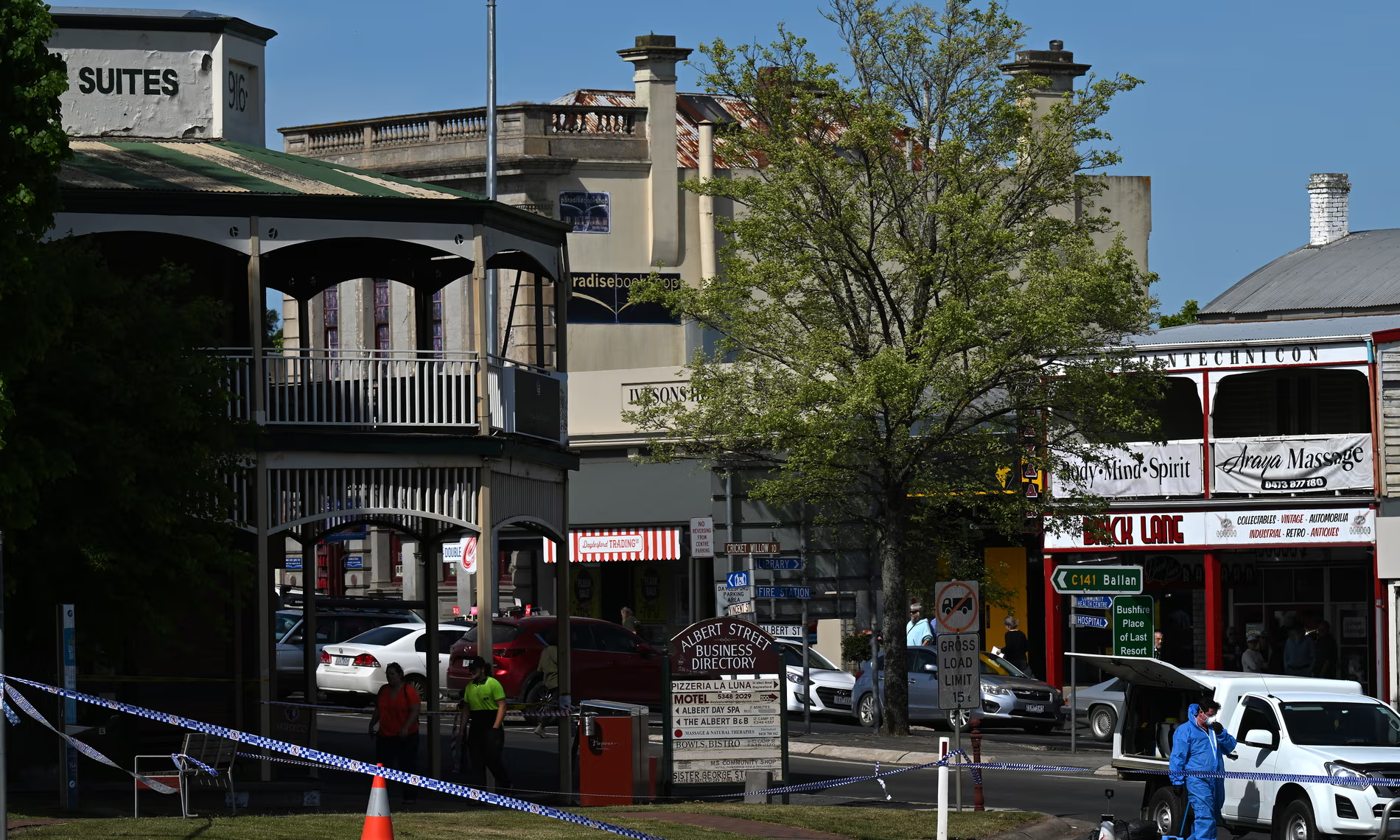Trump attacks Harris as a ‘Crazy Laugh’ lady – but she may have the last laugh.
With Vice President Kamala Harris’ ascent to the top of the Democratic ticket, Republicans are rebuilding a campaign attack strategy that for months focused on running against President Joe Biden. One popular narrative asserts that Harris laughs too much at inappropriate moments – part of a broader argument that Harris is loud, awkward, and prone to gaffes.
“I call her ‘laughing Kamala,’” former President Donald Trump said at a rally in Michigan on July 24. “Have you ever watched her laugh? She is crazy. You can tell a lot by a laugh… She is nuts.”
Harris has responded with confidence and good humor. When Trump wavered in a Fox News interview Monday night about whether he would debate Harris on TV, Harris made lighthearted fun of the disparaging things Trump has said about her, seeming to tease him with the retort, “If you got something to say, say it to my face.” Her supporters at the Atlanta rally erupted in cheers and laughter.
As a professor of American studies with a focus on race and politics, I know that Black women in the U.S. have a history of struggle against violence and oppression. And too often, when we experience joy and show it, ridicule follows. We are said to be too loud, too emotional, too much – too “Black women.”
History shows that this is a familiar dog whistle. Black women have been portrayed in popular culture as sexually provocative Jezebels, emasculating “Sapphires” or servile, nurturing Mammys. Those labels don’t fit Harris, so Trump has created a new epithet: “crazy laugh” lady.
Invisibility has long haunted Black girls and women. In response, their choices, from dress to spirituality to activist groups, often center on making themselves visible. They do this to highlight injustice and to offer a vision of justice based on their experiences.
As I see it, Black women deserve some of that visibility to be joyful. In this realm, Harris is paving the way.
The vice president’s anecdotes, smile, laugh, and even – shocker – her enthusiastic dancing in public has inspired a tidal wave of fan posts and videos celebrating her energy and what media scholar Jamie Cohen describes as her “endearing awkwardness.”
For these observers, Harris embodies the idea of Black joy – a national movement that started in 2020 after George Floyd was killed. As NAACP Legal Defense Fund senior writer Lindsey Norward explains, “Black joy is an essential part of the complete story of Black people in their fight for dignity and reclamation … the unfettered ability to go and enjoy all of the good things about life.”
In a book that I co-edited with Wake Forest University political scientist Julia Jordan-Zachery, we examined a related concept: Black Girl Magic. Our book described how Black girls and women maintain their humanity in the face of hostility by fostering community, countering invisibility, and creating spaces for freedom.
Sometimes this means drawing attention to their struggles. One essay in the book cites African American Policy Forum Executive Director Kimberlé Crenshaw, explaining the hashtag #SayHerName, which was coined to raise awareness of Black women victims of police brutality and anti-Black violence.
“Although Black women are routinely killed, raped, and beaten by the police, their experiences are rarely foregrounded in popular understandings of police brutality,” Crenshaw wrote. “Yet the inclusion of Black women’s experiences in social movements, media narratives, and policy demands around policing and police brutality is critical to effectively combating racialized state violence for Black communities and other communities of color.”
On July 23, Harris released a statement expressing grief at the “senseless death” of Sonya Massey, a 36-year-old Black woman who was fatally shot in her Illinois home by a sheriff’s deputy who responded to a report of a prowler. The deputy has been fired and charged with murder, based on bodycam footage from another deputy that showed him threatening Massey after she rebuked him and then shooting her.
“Sonya Massey deserved to be safe,” Harris wrote. “The disturbing footage released yesterday confirms what we know from the lived experiences of so many – we have much work to do to ensure that our justice system fully lives up to its name.” In other words, Harris said Massey’s name.
In the age of Trump, whom an overwhelming majority of Black women see as hostile to their interests, finding the balance between humanity and magic is more important than ever for Black girls and women.
As then-first lady Michelle Obama said in a speech at the March 2015 Black Girls Rock Awards, young Black girls often hear “voices that tell you that you’re not good enough, that you have to look a certain way, act a certain way; that if you speak up, you’re too loud; if you step up to lead, you’re being bossy.”
Harris has confronted this challenge many times throughout her career as a district attorney, state attorney general, senator, and vice president. Now she has to invent herself again as a presidential candidate. And even with a large campaign staff, Harris will have to do this for herself.

As Nobel laureate Toni Morrison observed, the Black woman has “nothing to fall back on not maleness, not whiteness, not ladyhood, not anything. And out of the profound desolation of her reality, she may very well have invented herself.”
Black women draw on emotional fortitude to accomplish so many feats while breaking unfathomable barriers. It’s no exaggeration to call what they do magic.
Harris will need plenty of support for a successful campaign – from Black women and many others. There will be serious issues to debate, from border security to foreign policy to the economy. But Harris also has a real opportunity to contrast her humor and positive energy with a very dark vision from the GOP – without letting them dictate when it’s OK for her to laugh.
Duchess Harris is a professor of American Studies at Macalester College in St. Paul, Minnesota, and an advisory board member for The Kamala Harris Project, a group of scholars in politics, communications, history, and public policy studying the first woman of color vice president in U.S. history. She is not related to Kamala Harris.
This commentary is adapted from one originally published by The Conversation, a nonprofit, independent news organization dedicated to bringing the knowledge of academic experts to the public. ![]()
Related posts:
- Can Paris Keep Politics Out of the Summer Olympics?
- RFK Jr Questions Trump’s Recent Pro-Crypto Tone as the Two Vie for Votes
- Hopes of Finding Survivors Fade in India’s Kerala After Landslides Kill 167
- UK Experiences Worst Riots in 13 Years Due to False Rumors; Over 100 Arrested: What’s Happening in England?









Leave a Reply